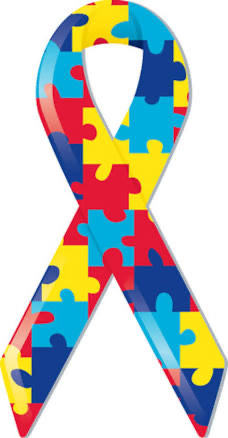For many years, people have always been curious about dreams. Dreams give us a sneak peek into our subconscious mind. The subconscious mind is a part of the mind that we are not fully aware of but controls our actions and or feelings.
In dreams, reality fades and the impossible takes over. The chances of having dreams with bright images and silly stories motivate us to look into our thoughts and feelings. While we sleep our brains create weird stories filled with unusual places, characters, and unexpected events that often leave us wondering their meaning when we wake up. This interest goes beyond simple curiosity; it’s like a way for us to learn about ourselves and consider our creativity reflecting our deepest fears and wishes. Whether they make us laugh or feel weird, strange dreams hold our attention throughout the day challenging us to reveal things about our daily lives.
Dream Analysis
Understanding the strange and often confusing nature of weird dreams can be explored through different points of view. Analyst Freudian suggests that dreams are a way for our conscious mind to send messages to our conscious self. Meaning the dreams we have have a message that will help us in real life. Whether it’s an idea to solve a problem or an idea to create something, some dreams are thoughts that we often hold back or are hidden wishes or unresolved issues that we are dealing with.
An interesting perspective comes from Jungian Psychology. Mr.Carl Jung affirmed that all humans somehow reveal ancestral memories and knowledge. These memories are represented in dreams, myths, and folklore. Jung believed some people suggest that things that appear in dreams can explore their ties to the real world. It allows individuals to have a deeper understanding of themselves and their calling in this world.
In modern times there is a theory that sees dreams as a reflection of our daily thoughts, feelings, and experiences. This point of view suggests that unusual dreams mean that our brains are trying to process and make sense of information, especially after an emotional event. By looking back on the situations you have experienced daily some people can recognize what might be causing stress or anxiety in their real lives. This realization can empower them to make positive changes and improve their overall well-being.
Case studies
In some cases, dreams can Inspire creativity. In the novel “Frankenstein,” Mary Shelley experiences a dream in which a creature comes to life. This Vision sparked the idea of her now-famous story “Frankenstein”. Elias Howe, the inventor of the sewing machine, is another great example. According to “The Artful Alchemist” This inventor had a dream in which he was captured by a group of natives who were about to harm him, as he watched the dance around him with Spears that had holes in the tips. For a while, this image remained with him and inspired him to design the locksmith mechanism for the sewing machine. His dream served as an example of how your subconscious mind can contribute to problem-solving and innovation.
The Psychology and Science of Weird Dreams
While many studies explain why we have dreams, there’s no understanding of what they mean. Some say dreams mean nothing, instead, they suggest that our brains pull out stored images or scenarios from our memories. Although some dreams are silly or funny these can or may contribute to our brain in problem solving. Our brain is like a library but it sorts out what information or memories are important to keep and which ones can be forgotten.
Some scientists suggest that dreams are just like an antivirus. Dreams clear our thoughts, that’s why we sometimes have good dreams and sometimes we have bad dreams. Dreams clear our consciousness. Another theory is the “Threat Simulation Theory”, which suggests that dreams are a protective mechanism to face our fears. But in reality, we can either be delighted with happy dreams or worried about the bad ones.
Stress and Anxiety
Stress and Anxiety problems are a huge part of our personal and professional lives. When you’re stressed or anxious your brain is on high alert. This causes our dreams to reflect what our brain is going through. Some common stress dreams may show one being chased or having that sense of fear as if something bad is going to happen. Stress can also disrupt your sleep leading to daydreaming. Individuals with high levels of anxiety are more prone to nightmares than individuals with no anxiety.
Heavy medication may affect the neurotransmitters in our brains. This is a chemical responsible for our mood and alertness. Antidepressants, steroids, Alzheimer’s and Parkinson’s medication along with Cholesterol-lowering drugs may lead to weird dreams. Alcohol, drugs, and recreational drugs may also lead to traumatic dreams because the chemical in the brain is altered. Sleeping disorders such as insomnia sleep apnea and even jet lag can contribute to bad dreams since the whole body has been restless for a long period of time.
The food that we consume is also a big factor in the dreams that we have. Psychologists suggest consuming healthy food and drinking lots of water, maintaining a healthy weight by eating low fats, and treating any mental or physical condition that is affecting your sleep schedule. Meditation, yoga, or deep breathing are techniques to cope with stress. Although there’s no specific treatment to cure those weird dreams, we can put into practice everything I’ve mentioned above to possibly experience good sleep without the bad dreams.
In conclusion, whatever the real meaning behind dreams is, we know that they play a crucial role in our daily emotions. You can be excited and happy because you had an amazing dream, with family and friends on an island having a great time. Or you can be worried about what it means to be chased by a dog in a flower field with a yellow hat. Dreams will continue to be a mystery and an important area of study in psychology.












































